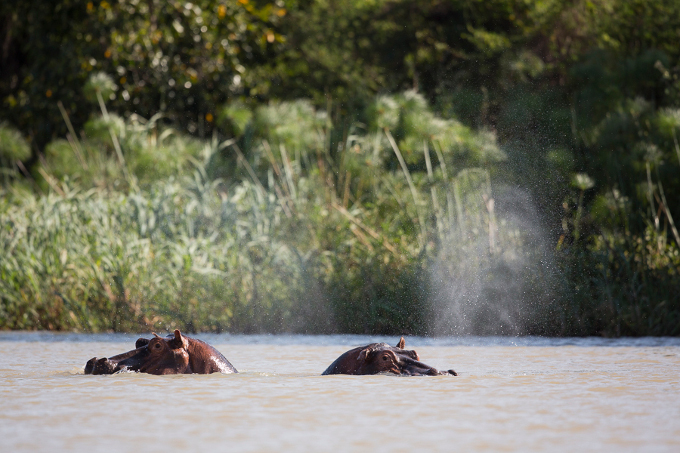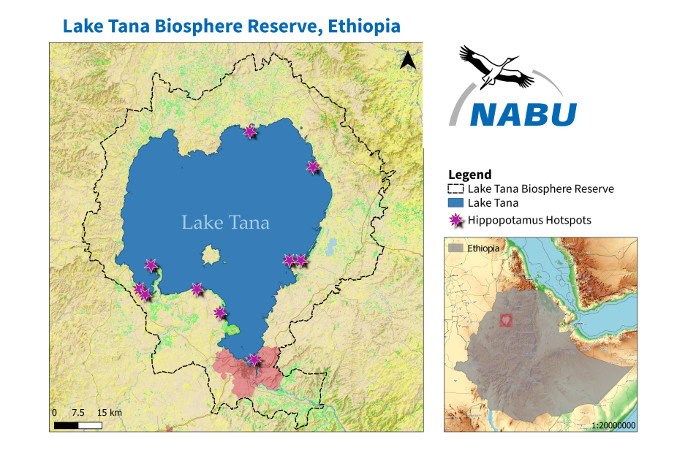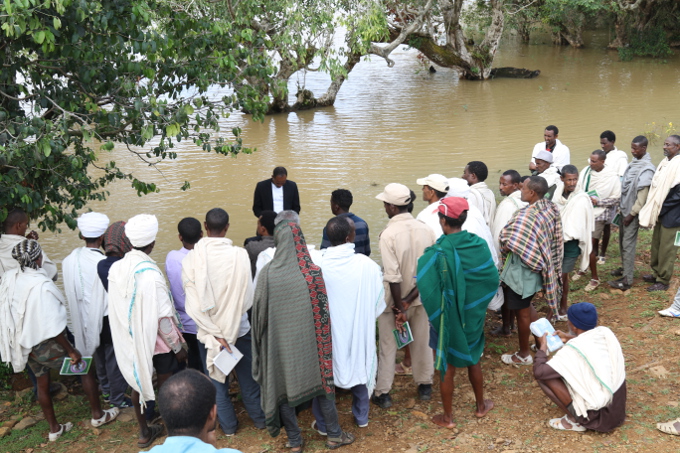World Water Day - Celebrating with 312 Hippos
First baseline data established for Lake Tana thanks to NABU’s citizen science project

Hippos can be found all around Lake Tana - until now, no one knew anything about population size - Photo: Bruno D’Amicis
22th March 2019 - You can only protect, what you know exists. So far, nobody at Lake Tana had an idea of how many Hippopotamus actually live around the lake. NABU and the University of Gondar went new ways to determine a baseline for continuous species monitoring and have now established the first data – 312 individuals were counted in 10 hotspot sites. A total of 30 community members were involved and are now sharing their new knowledge as hippo ambassadors, informing their neighbours about benefits and protection needs of the species.
Over the course of one year, 30 volunteers living close to and often also from the resources of Lake Tana, e.g. as fishermen, counted and identified the hippos they saw. The researchers from the University of Gondar analyzed the data and determined a total of 312 individuals for the 10 hotspot sites as baseline data for continuous monitoring. An annual monitoring by the Biosphere Reserve Management Unit will in future show trends in population size and enable swift action for protection if needed. The counted number of adult animals currently significantly exceeds the number of young hioppos, which could be a warning signal of the population´s decline and has to be closely monitored in future.

Map indicating the 10 hotspots that were chosen for this citizen science project - MAP: NABU
The Lake Tana Biosphere Reserve was established with the aim to conserve Ethiopia’s largest lake, while also fostering sustainable development for the communities. Conservation of biodiversity needs information – on species population, trends in occurrence, distribution or status of species. A monitoring system was established by NABU to create a strong data foundation for long-term scientific monitoring of the biological environment. But for some values, e.g. hippopotamus, base line data did not exist.
As UNESCO biosphere reserves are model regions for sustainable development and a harmony between people and nature, one core aspect of the long term monitoring of the Lake Tana Biosphere Reserve is a Citizen Science approach, to ensure the involvement and awareness of the local communities.

Researchers chose 10 hotspots all around the lake to determine baseline data for a monitoring - Photo: NABU
Citizen Science is a well-organized research method in which members of the general public – who may or may not be trained in science – gather data for scientific analysis. A common denominator of all citizen science activities is that reporting is done on a voluntary basis. The vast number of data that can be collected by a large number of volunteers exceeds any professional capacity for monitoring and is e.g. in Germany regularly practiced by NABU for bird counting.
Now baseline data is finally available and Lake Tana gained 30 well-trained hippopotamus ambassadors who are teaching their communities about the benefits of this incredible species.
NABU supported the data collection and training within the frame of the BMZ-funded project “Community based Climate Adaptation and Biodiversity Conservation in the model area of Lake Tana Biosphere Reserve, Ethiopia”
